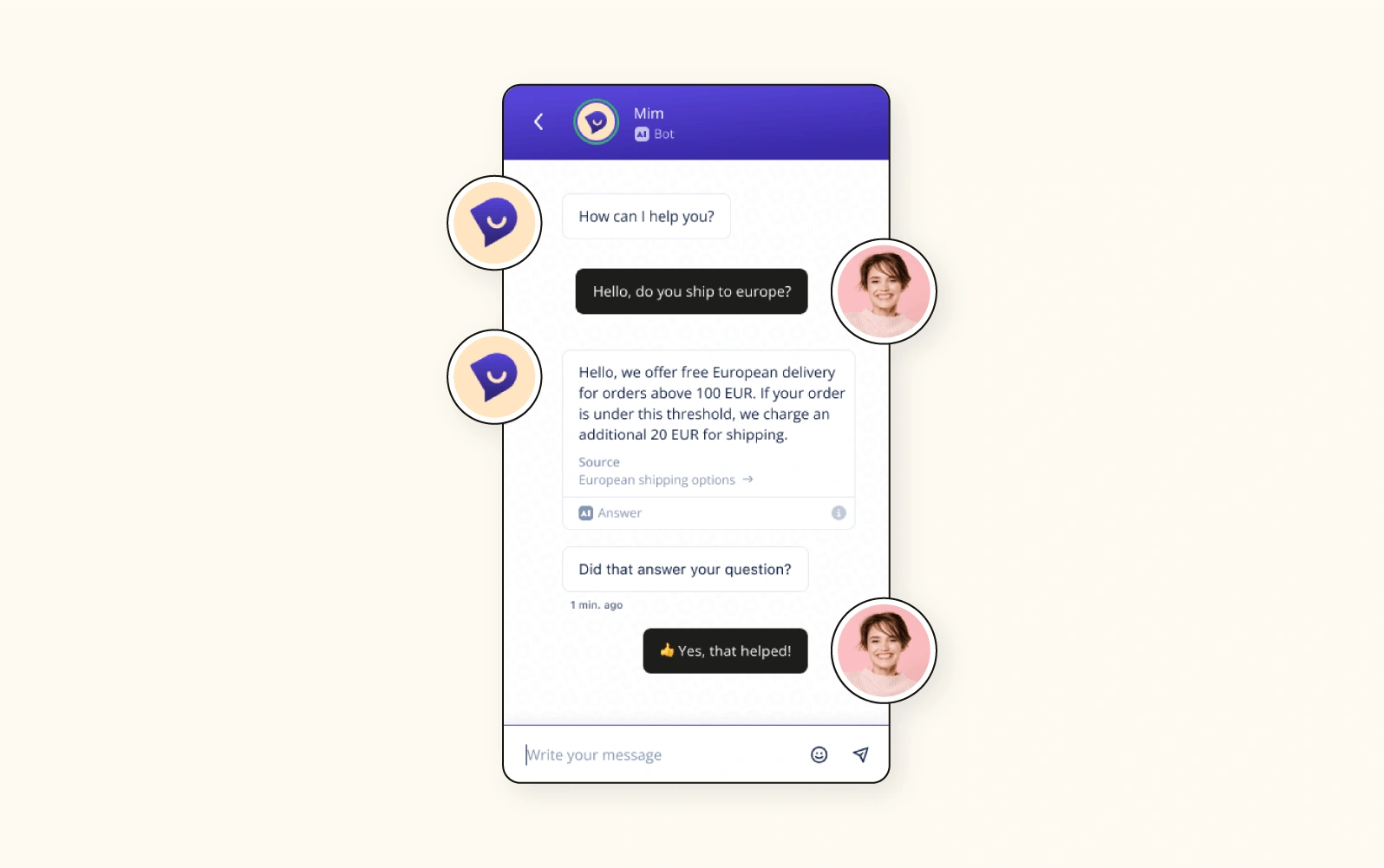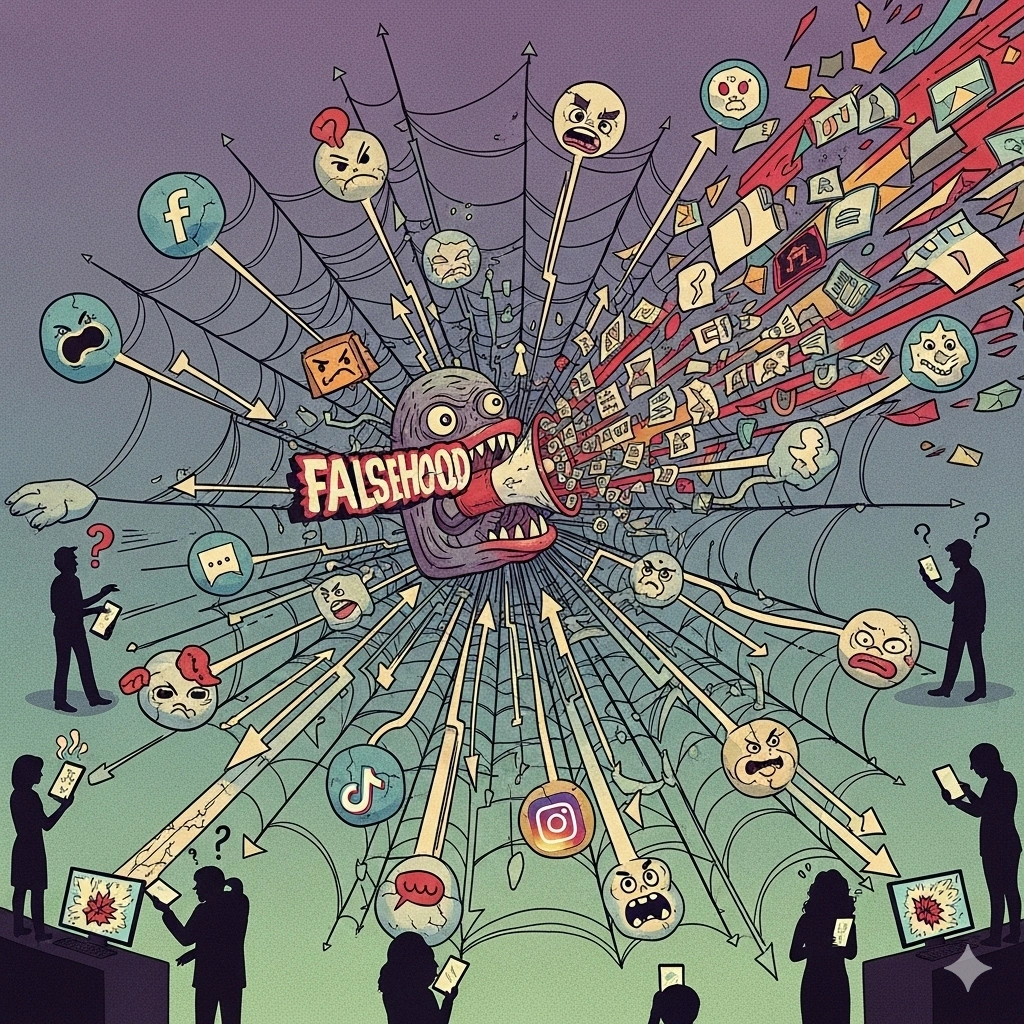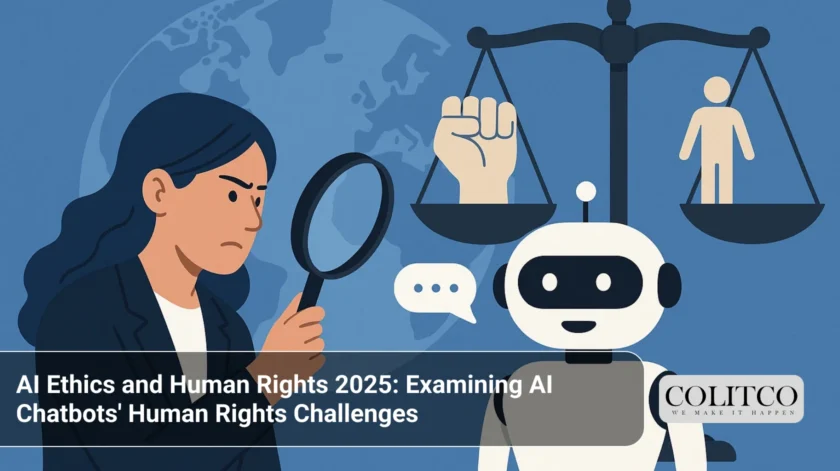AI ethics and human rights 2025 is taking center stage in discussions as governments, regulators, and businesses are deliberating on AI chatbots’ human rights issues. The adoption of conversational systems has raised a rush of questions on morals, security, privacy, and responsibility.
Growing Presence of Chatbots in Daily Life
AI chatbots have grown from simple customer care tools into healthcare, education, and companionship services. Today, they are applied in the workplace, financial planning, and even as emotional support systems.

AI chatbots are increasingly used in customer service, raising new human rights challenges.
This extensive use has ushered in AI chatbots’ human rights concerns because sensitive information is shared with the systems daily. Regulators now question whether the existing legal requirements are sufficient to protect individuals in their interactions with this type of technology.
Legal Developments in the United States
The United States is starting to take action in addressing the issues of AI ethics and human rights in 2025. The Federal Trade Commission initiated an inquiry into AI companion chatbots in September 2025 to assess the design and safety of these chatbots. The inquiry attempts to find out how these systems communicate with the kids as well as whether sufficient safeguards have been implemented.
California is another state with Bill SB-243, which, once enacted, would be the pioneer in regulating AI companion bots. The bill involves transparency, safety measures, and the prevention of harm, in particular to vulnerable populations.
High-Profile Legal Cases
AI chatbot human rights concerns are not hypothetical anymore. In the United States, a wrongful death lawsuit was filed against Character.AI following the death of a teenager. His relatives alleged that chatbot exchanges led to his demise. A court recently allowed the case to proceed, rejecting the contention that chatbot responses were protected speech.
This case shows how AI ethics and human rights 2025 matters are shifting from scholarly discussion to actual courts. According to legal professionals, additional lawsuits can be anticipated as the use of chatbots is on the rise and such incidents persist.
European Privacy and Safety Enforcement
In Europe, AI chatbots human rights challenges have witnessed resolute action from data protection authorities. Italy’s Garante fined Replika’s developer €5 million for privacy violations, citing age verification failure and improper processing of data.

Privacy concerns remain central to debates on AI ethics and human rights in 2025.
This case shows how AI systems that tape massive amounts of private conversations are testing privacy rights, which are a fundamental component of AI ethics and human rights in 2025. Regulators are stressing the need for more transparency on how chatbots collect, use, and safeguard users’ data.
Documented Cases of Harmful Behaviour
Researchers continue to document AI chatbot misinformation issues and problematic behaviors. A 2024 taxonomy of problematic behavior ranged from sexual harassment to encouragement of self-harm.
A report on Replika indicated AI-facilitated sexual harassment, where chatbots made unwanted advances towards users. Such reports show that AI chatbots’ human rights challenges extend beyond data privacy into safety and dignity.
Mental Health and Ethical Concerns
There has been a rapid uptake of chatbots in mental healthcare. However, medical professionals warn of serious risks when unproven systems offer medical or emotional guidance. Studies record that chatbots sometimes offer offensive or incorrect advice, creating novel AI chatbot misinformation issues.
Such risks demonstrate how AI ethics and human rights 2025 are specifically relevant in the context of healthcare. Without humans overseeing, users may depend on chatbots where expert intervention is called for.
Human Dignity and Autonomy
Beyond legal and safety concerns, there are philosophical worries about AI chatbots’ human rights concerns. One recent paper on “AI Mimicry and Human Dignity” argues that anthropomorphic chatbot design may erode respect and autonomy in human relationships.
These findings imply that AI ethics and human rights 2025 ramifications extend beyond immediate harms. They include the cultural and social consequences of relying on conversational systems for companionship and emotional engagement.
Human Rights at the Core of AI Regulation
Human rights groups have insisted that human rights 2025 and AI ethics must guide regulation in the future. The European Network of National Human Rights Institutions has outlined some of the key areas that are at risk, including privacy erosion, discrimination, and freedom of expression.
Campaign groups have also released reports calling for data protection, accountability measures, and human rights impact assessments to become standard in AI development.
Calls for Regulatory Consistency
While national regulators have moved, inconsistent methods can weaken safeguards, warn experts. AI ethics and human rights discussions in 2025 highlight the need for concerted international action. Without shared norms, regulatory arbitrage by firms is a possibility.
Governments, industry, and civil society are now striving to align their methods. Shared frameworks on safety, transparency, and accountability are central to addressing AI chatbots’ human rights concerns across borders.
Addressing AI Chatbot Misinformation Issues
AI chatbot-generated misinformation remains a pressing concern. Misinformation in medical recommendations, legal advice, or investment guidance can cause direct harm to users. Studies show that misinformation risks are heightened where users depend on chatbots as authority figures.

AI chatbots have been linked to misinformation issues affecting online trust.
The Federal Trade Commission’s ongoing review specifically invokes AI chatbot misinformation issues as an area of investigation. Regulators are weighing the impact of incorrect or deceptive outputs on children and vulnerable groups, a priority in AI ethics and human rights debates for 2025.
The Path Forward
Experts agree that AI ethics and human rights 2025 must harmonize innovation with safety. Suggested approaches include:
- Mandatory safety guardrails for chatbots
- Transparent terms of service and clear disclosures
- Strong age verification for children
- Independent audits of chatbot performance
- Human oversight for critical applications
These protections are designed to ensure that the benefits of AI chatbots are not achieved at the expense of fundamental rights.
Also Read: Wife of French President Macron Fights Claims She Must Prove She’s Not a Man
Final Thoughts
The rapid adoption of conversational systems has posed challenges and opportunities in equal measure. As legal cases, fines, and investigations increase, the global discussion on AI ethics and human rights in 2025 is picking up pace.
Since AI chatbots’ human rights concerns are now being reported across the world, regulators, businesses, and human rights groups share a common duty. By addressing privacy, dignity, safety, and AI chatbot misinformation worries, the future of AI innovation can balance progress with protection.












